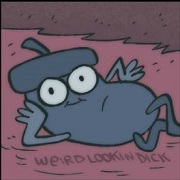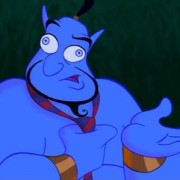|
homullus posted:when discussing whether companies or their divisions are "making money," keep in mind that Amazon pulls in billions in USD every year in revenue but has posted negative income several years, even recently. When you see gaudy numbers for video games and Hasbro and such, they are usually revenue numbers. I have looked at Hasbro financial reports in the past, and they do not break out numbers for most individual brands such as Jenga or Barbie. They don't typically break out numbers for D&D specifically, although they have supplied some numbers for Magic in various announcements in the last couple years and you can infer that a good portion of the remainder from the WotC subdivision is for D&D, since sales from properties like Guillotine and Robo Rally have to be pretty small. Revenue: the amount of money a business got from its operations, not accounting for any of its costs Profit: revenue minus all expenses Income: Profit minus net payments to investors, such as via dividends and stock buybacks. This is essentially the net cashflow the company will have to work from (or make up for) by adding to cash reserves (or taking from them) or retiring debt (or borrowing). For most people, revenue and profit are the important figures that are meaningful, because we don't really care if Hasbro's 2022 income was a specific number lower than some other specific number because it paid a dividend. Amazon famously operated at a net loss for over a decade as it grew its business because it reinvested all of its revenue in excess of cost-of-goods-sold into R&D and growth, reporting negative profits (and incomes). Amazon revenues (billions)  Amazon gross profits (billions)  Amazon net income (billions), expressed in a couple different ways:  source You can see the same charts for Hasbro, here: https://www.macrotrends.net/stocks/charts/HAS/hasbro/net-income E. in their latest 10-Q, Hasbro's segment reporting is for "consumer products", "wizards of the coast and digital gaming", "entertainment", and "corporate and other". WotC segment is further broken down by "tabletop gaming" and "digital and licensed gaming" subcategories. "entertainment" is broken down a few ways, including by "franchise brands" (the latest 10-Q notes that PEPPA PIG has been moved into this category), "partner brands," "hasbro gaming" which has a footnote that Magic and Monopoly are explicitly excluded from this category: quote:2) Hasbro's total gaming category, which includes all gaming net revenues, both those reported in Hasbro Gaming and those reported elsewhere, most notably MAGIC: THE GATHERING and MONOPOLY which are reported within Franchise Brands, totaled $508.6 million and $1,415.7 million for the quarter and nine months ended September 25, 2022, respectively. For the quarter and nine months ended September 26, 2021, total gaming revenues were $658.6 million and $1,543.3 million, respectively. This report also notes that quote:During the second quarter of 2022, the Company completed the strategic, complementary acquisition of D&D Beyond (the "D&D Beyond Acquisition"), the premier digital content platform for DUNGEONS & DRAGONS, in an all-cash transaction for a purchase price of $146.3 million. e. here's another interesting footnote: quote:Royalty expense for the third quarter of 2022 decreased to $135.1 million, or 8.1% of net revenues, compared to $171.8 million, or 8.7% of net revenues, for the third quarter of 2021. Fluctuations in royalty expense are generally related to the volume of content releases and deliveries and entertainment-driven products sold. The decrease in royalty expense during the third quarter of 2022 reflects lower sales of Partner Brands and the mix of Film and TV deliveries during the quarter, partially offset by higher royalty expenses related to the release of Magic: The Gathering Universes Beyond: Warhammer 40,000. quote:Wizards of the Coast and Digital Gaming segment net revenues decreased 2% in the first nine months of 2022 to $986.1 million from $1,008.7 million in the first nine months of 2021 and included the impact of an unfavorable $19.9 million foreign currency translation. Absent the impact of foreign currency exchange, Wizards of the Coast and Digital Gaming Segment net revenues were relatively flat. This is about as close as we get to numbers that we could use to infer the actual revenues from D&D, by subtracting numbers quoted for Wizards. But these are operating profit numbers, not gross revenue, so we have to apply a profitability factor, and the note itself is saying that profitability fluctuated. Leperflesh fucked around with this message at 22:45 on Feb 9, 2023 |
|
|
|

|
| # ? May 28, 2024 22:47 |
|
Thanlis posted:There’s a specific list of things that can be product identity; you can’t declare anything you want as PI. Yes, I know people ignore that all the time. quote:"Product Identity" means product and product line names, logos and identifying marks including trade dress; artifacts; creatures characters; stories, storylines, plots, thematic elements, dialogue, incidents, language, artwork, symbols, designs, depictions, likenesses, formats, poses, concepts, themes and graphic, photographic and other visual or audio representations; names and descriptions of characters, spells, enchantments, personalities, teams, personas, likenesses and special abilities; places, locations, environments, creatures, equipment, magical or supernatural abilities or effects, logos, symbols, or graphic designs; and any other trademark or registered trademark clearly identified as Product identity by the owner of the Product Identity, and which specifically excludes the Open Game Content; Based on the above list every character, every location, every physical object, every skill or ability, and every organisation in your game setting could be Product Identity unless you got it from Open Game Content, and even then whilst a generic goblin based on the OGL goblin wouldn't be Product Identity, Gertrude the Goblin who has the OGL goblin statline but happens to be called "Gertrude" and have a particular costume can have her name and her costume be Product Identity. If you can think of anything which it makes sense to put in an RPG rulebook which couldn't be crowbarred into one of the above categories, I'd love to know about it. Rules systems don't seem to be explicitly mentioned, but even then almost all rules (especially in a D&D-derived context) will have some sort of connection to one of those things anyway.
|
|
|
|
Warthur posted:If you can think of anything which it makes sense to put in an RPG rulebook which couldn't be crowbarred into one of the above categories, I'd love to know about it. Rules systems don't seem to be explicitly mentioned, but even then almost all rules (especially in a D&D-derived context) will have some sort of connection to one of those things anyway. I think you’re wrong about connections — you don’t get to declare something as PI just because it’s connected to something that can’t be PI — but I’m not a lawyer and for all I know you’re right. Green Ronin declared Hero Points as PI, which was called out as bullshit at the time but nobody’s enforcing it so nothing happened. I’ve been saying that the fuzziness of the definitions here is a massive license weakness for literally 20 years. So it goes. I continue to assert that, as a publisher, it is easier to work with a clear license that allows me to make anything I want and nothing I don’t want available without fiddling around with confusing ambiguous words like “concept.”
|
|
|
|
Terrible Opinions posted:Hasbro's earning reports are all public and Wizards plus digital gameing overall only makes about 20% of their income on any given quarter, and that includes Mtg both paper and arena each of which make more than D&D on there own. If D&D as a brand is making a quarter of WotC's money it's in non-Wizards tie in merch. MtG makes more than D&D, yes. It's the big moneymaker for WotC. Magic the Gathering is not included in the Hasbro Gaming category. Cycloneman fucked around with this message at 01:00 on Feb 10, 2023 |
|
|
|
Cycloneman posted:A decent amount of open gaming content was stuff that absolutely 100% was copyrightable; Freeport was declared OGC, for example. Well of course they were copyrightable, and were “copyrighted”, because if you don’t hold copyright on something then you can’t determine its licensing terms, such as putting it under the terms of the OGL.
|
|
|
|
D&D Beyond boycotts didn’t change OGL plans, says Wizardsquote:D&D executive producer Kyle Brink has confirmed revisions to the controversial OGL 1.1 document were not made in response to cancelled D&DBeyond subscriptions. TTRPG podcast team Three Black Halflings interviewed Brink on February 6. “We were already working on that document before the folks who decided to stop subscribing decided to start doing that”, Brink tells Three Black Halfling members Olivia Kennedy and Jeremy Cobb.
|
|
|
|
Nah.
|
|
|
|
don't believe that for a second
|
|
|
|
"And I bet those grapes were sour anyway!"
|
|
|
|
Didn't he also say he's got no idea who wrote and posted that "You think you've won, but in fact we all win" proto-apology? Either he's lying or he's not an especially competent CEO, and heck, those aren't mutually exclusive.
|
|
|
|
He’s not a CEO.
|
|
|
|
Cycloneman posted:None of your statements contradict what I said at all. Terrible Opinions fucked around with this message at 04:03 on Feb 10, 2023 |
|
|
|
Nah. Some exec stormed in one day after sustained community backlash, byond cancellations, and other companies like paizo making record sales. Someone got told to fix things in a hurry
|
|
|
|
Sure, Jan.
|
|
|
|

|
|
|
|
lmao Kyle Brink rolled a nat 1 on deception
|
|
|
|
I mean, it could all be true while also being true-ish “we were already working on 1.2 because of problematic elements” is probably true, but that doesn’t mean their 1.2 and the 1.2 we got are anywhere near the same. “We didn’t have time to respond to subscription drops” doesn’t mean they didn’t have time to respond to the mass response that preceded the drops. “Legal moves slowly” doesn’t mean the slow moving legal work was entirely uninfluenced by what was going on in the community. And he’s just the EP on Beyond so he’d probably be fired if he was fully honest.
|
|
|
|
I'm not owned, etc.
|
|
|
|
admanb posted:And he’s just the EP on Beyond so he’d probably be fired if he was fully honest. He is the EP for D&D, i.e. Crawford (Lead Rules Designer) and Perkins (Lead Story Designer) report directly to him.
|
|
|
|
So who's the person posting awful apologies that doesn't report to him, I wonder.
|
|
|
|
This is how the whole thing turned out: Shareholders: MAKE NUMBER GO UP. Execs: Well, we have the 50th anniversary edition of OneDnD coming in 2024. We're playtesting One D&D now for it's release Shareholders: Too slow. MAKE NUMBER GO UP FASTER. Execs: Um, we have D&D Beyond... Shareholders: DOES THAT MAKE NUMBER GO UP FASTER? Execs: Maybe? Shareholders: MAYBE IS NOT GOOD ENOUGH. MAKE NUMBER GO UP. FAST. Jock Exec: That's because we're not doing enough to monetize our brand Exec: Wha? We're the highest selling brand of RPG's out there.. Jock Exec: Precisely. RPG's are D&D. D&D are RPG's. If people are playing RPG's it's because of D&D. They need to pay us. Besides, look at all the D&D WE'RE not getting paid for.. Exec: Like what? Jock Exec: Critical Role. Third Party supplements. Other RPG systems. They're taking money from us, and I want their lunch money, just like the old days.. Execs: Um, you may not want to annoy gamers.. Jock Exec: What are going to do, complain? Throw a few of them in lockers, and they'll fold. Switch em all to a subscription. If they want to play online, they have to use us. That way we get paid every month instead of on a release schedule. If they don't pay us, they can't play D&D and thus can't play RPGs. Execs: This is a bad idea... Shareholders (Holding up a Cthulhu like tentacle) Wait. Pay us every month? THIS MAKES NUMBER GO UP? Jock Exec: Yes. Shareholder: DO IT. MAKE NUMBER GO UP. (a couple weeks later) Shareholders (now looking angry/hungry): NUMBER HAS NOT GONE UP. NUMBER HAS GONE DOWN. WHAT HAPPENED TO NUMBER GOING UP? Jock Exec (sweating): It's just a temporary setback, by a few online folks Exec: Who have caused Number Going Down because they don't like our plans to wall them in and change the paradigm. Jock Exec: They'll fold. They have to, what are they going to do, not play D&D? Exec: Just about every D&D adjacent book has done record sales. Shareholders: WAIT. (eldritch symbols appear) Jock Exec: ooooh boy. Shareholders: SO YOU SAY THAT OUR NUMBER GOES DOWN AND OTHERS NUMBERS GO UP BECAUSE OF THIS PLAN? Jock Exec (weakly) no Execs: (loudly) Yes. Shareholders: Then fix. NUMBER MUST GO UP. Jock Exec: (crying) but our monetization... We can't let them terrorize us out of this.. Execs: By terrorize, you mean, not buying our stuff, and buy other people's stuff? Jock Exec: Yes? Shareholders: WE HAVE HEARD ENOUGH. TELL GAMER PEOPLE THAT THEY DID NOT CHANGE OUR PLAN, THEN CHANGE PLAN. JOCK EXEC, PLEASE COME WITH US. BRING TARTAR SAUCE. WE HUNGER. Jock Exec: Does this mean I don't get a golden parachute? SirFozzie fucked around with this message at 19:31 on Feb 10, 2023 |
|
|
|
Just like we got their VTT partner list last week, now we have Kobold's list of publishing partners. I certainly didn't expect third party publishers for a third party publisher, tbh. And I'm wondering what separates a Black Flag original from Black Flag compatible 5E content. The Bee fucked around with this message at 19:35 on Feb 10, 2023 |
|
|
|
SirFozzie posted:This is how the whole thing turned out: This is very funny but I do think a significant factor here was seeing the huge revenues from Magic: Arena and the dumb exec saying "make number go up the same way" and the response is "but D&D doesn't work that way" for like, a couple years, until eventually their 12 year old told them about VTTs and suddenly it's "MAKE VTT LIKE ARENA, NUMBER GO UP" and a lot of the idiocy we saw around the license changes, etc. is hamfisted attempt to create and wall off an exclusive digital D&D experience that can be monetized in an analogous way. Basically giving away paper D&D via the creative commons license but still carefully reserving VTT development as a protected area is a telling signal that this imperative is still at play.
|
|
|
The Bee posted:Just like we got their VTT partner list last week, now we have Kobold's list of publishing partners. I clicked on Dungeon Scribe from that link, and it looks like it's just one person. If they're making decent money from 5e I could easily see them not wanting or being able to afford figuring out how to do this themselves. Having the option to sign on with someone else would keep them going. Makes sense, there's a lot of people making adventures that sell 50 copies, or has a Patreon that they publish new cool magic items on that brings in some cash on the side.
|
|
|
|
|
So it occurs to me that Wizards putting out SRD 5.1 under Creative Commons is, in and of itself, a breach of the OGL. The logic: - The SRD 5.1, save for the sections identified as Product Identity, is Open Game Content by virtue of being put out under OGL 1.0a. - OGL 1.0a requires you to include a notice indicating that the Open Game Content may only be Used under the terms of OGL 1.0a, and a copy of OGL 1.0a (paragraphs 2 and 10). - The Creative Commons version of SRD 5.1 is undeniably a Use in the sense of OGL 1.0a, because it's distributing Open Game Content, and doesn't include a notice or a copy of OGL 1.0a, thus breaching OGL 1.0a. Now, to be fair, who is going to sue Wizards for doing this? Not Wizards, that for sure. But it does seem to create an interesting legal jeopardy. On the one hand, you could see Wizards putting out SRD 5.1 under Creative Commons as creating implicit permission for other people to the same with their own Open Game Content - if I were acting for Wizards I would find it hard to argue "It's OK for us to breach the OGL terms in this way, but not OK for anyone else participating in the licence to do it" in court. In that sense it could be a boon for other endeavours, like the ORC - because if it's OK to put out your own Open Game Content under new terms and conditions (like Creative Commons) in defiance of OGL 1.0a paragraph 2, it should be equally fine to do it under any other licence you come up with. On the other hand, if Wizards were able to argue in a court case that they themselves had breached the OGL 1.0a by putting out the Creative Commons version, could they then a) use a ruling to that effect to come after anyone who republishes Open Game Content without the OGL, and b) use that to "undo" the Creative Commons-ing of the SRD 5.1 by arguing that the release was illegitimate because, having bound themselves to the terms of OGL 1.0a, they didn't actually have the right to put the SRD out through Creative Commons in the first place? It feels like an unlikely gambit, but everything about this whole situation feels unlikely. Kyle Brink is correct that legal oversight of decisions isn't necessarily quick, but this just feels to me like further evidence that Wizards may not have actually had all that much legal oversight of what they've been doing - or that their usual process has been short-circuited in this instance - because I feel like the above is the sort of quagmire of uncertainty you don't deliberately steer into if you're carefully thinking through what you are doing from a legal perspective. EDIT: Ah, just caught something. Paragraphs 2 and 10 are stuff that "You" (the licensee, in terms of the licence) have to do. If it were argued that Wizards is the licensor in respect of SRD 5.1, and so is not bound in that respect in relation to their handling of SRD 5.1, that untangles it. However... the closest thing OGL 1.0a comes to defining the licensor is in paragraph 4, which states that "the Contributors" give You a licence to Use the Open Game Content. The "Contrtibutors" are defined as the IP owners who have contributed Open Game Content... so an argument can be made that the licensor of OGL 1.0a is not Wizards alone, but the collective body of everyone who is a Contributor, and Wizards can't unilaterally decide to break paragraphs 2 and 10 in respect of the SRD 5.1 because, in effect, when they use it they are acting as licensees of the Contributors as a whole. Warthur fucked around with this message at 00:39 on Feb 11, 2023 |
|
|
|
The rightsholder can relicense under a different license if they want to. It might not have any impact (eg, if something is GPL licensed people usually aren’t going to agree to license it for money, though sometimes they will to *avoid* some GPL encumbrance), but there’s no issue with the rightsholder offering to license something under two mutually incompatible licenses.
|
|
|
|
Warthur posted:So it occurs to me that Wizards putting out SRD 5.1 under Creative Commons is, in and of itself, a breach of the OGL. This is incorrect. Wizards legally owns the copyright to the text/ideas/whatever in the SRD themselves, then they chose to license it out under the OGL. The OGL does not preclude them from also distributing it under another license, because it was theirs before they released it as Open Gaming Content. However, you can't take existing Open Gaming Content and relicense it under Creative Commons without explicit permission from all contributors (with different licenses, this is not an infrequent problem for open source software). The 5e SRD did not come into existence innately as Open Gaming Content. It is what Wizards decided to release as Open Gaming Content, what they chose from their own copyrighted works. Going back to 2000 and the release of 3e, Wizards has had plenty of rights to the works they publish that they do not share under the OGL, including creating plenty of 3e and 5e rulebooks that don't contain anything OGL but do draw upon the D&D rules Wizards owns and which Wizards released part of under the OGL (as an SRD). Back in 3e days, Wizards would select some of these supplemental rulebooks to have selections themselves added to the OGL (for example, psionics) but this never encumbered their legal rights to their own rulebooks to do as they wished.
|
|
|
|
Arivia posted:This is incorrect. Wizards legally owns the copyright to the text/ideas/whatever in the SRD themselves, then they chose to license it out under the OGL. The OGL does not preclude them from also distributing it under another license, because it was theirs before they released it as Open Gaming Content. I think you are probably correct because nothing states that the Contributors give up any of their existing rights by contributing material, but I can imagine a judge with a loose understanding of IP law (a resource of which there is no shortage) being persuaded to rule that Contributing implicitly means you intend that the content in question should be handled as Open Game Content going forwards - which would mean ruling that Wizards were also in breach when they did those older books you mention, so feels unlikely, but "this licence is sloppily written and you've actually all been using it wrong all this time" doesn't feel like it is outside the possibility, especially if a case were heard in an eccentric enough venue. Which it could be - because OGL 1.0a flat-out fails to specify what body of law it should be interpreted under. One of the actual improvements in 1.2 is that it gave certainty on this - sure, it was certainty which was convenient for Wizards, but it at least meant they set aside the possibility of going venue-shopping to find the jurisdiction which would serve them best in a particular case. EDIT: gently caress no never mind, I'm an idiot, paragraph 4 says "non-exclusive", ignore me. Wizards aren't in breach, but anyone who tries to put their own Open Game Content into Creative Commons (or another licence) may find they are in risk of breach if that content is contaminated by any other Open Game Content where the Contributors haven't done the same. It's a hazard to people who've been mixing and mashing, but not to anyone who's been writing their own content entirely from scratch. Warthur fucked around with this message at 01:01 on Feb 11, 2023 |
|
|
|
Warthur posted:EDIT: gently caress no never mind, I'm an idiot, paragraph 4 says "non-exclusive", ignore me. Wizards aren't in breach, but anyone who tries to put their own Open Game Content into Creative Commons (or another licence) may find they are in risk of breach if that content is contaminated by any other Open Game Content where the Contributors haven't done the same. It's a hazard to people who've been mixing and mashing, but not to anyone who's been writing their own content entirely from scratch. Yeah, this is a risk. It is actually pretty important that WotC puts the 3.x SRDs under Creative Commons now, because it reduces some (but not all) of the problem. If they do, I think it would be good for the major third party publishers to follow suit, but I don't honestly have my fingers crossed there. Note that CC BY and OGL are compatible. Since CC BY doesn't mandate how you release your derivative content as long as you attribute it, you can release an OGL work that's based on both a CC BY licensed work and a OGL licensed work, which makes life somewhat easier. Likewise I would expect that CC BY and ORC will be compatible in the same way barring some very unlikely hostile approaches.
|
|
|
|
Incidentally, I think I have figured out a particularly aggressive nuclear option by which Wizards might have "deauthorised" OGL 1.0a (and may still try if the pendulum swings the other way again). So far, a lot of the attention on the subject has been aimed at paragraph 9, which is all about updating the licence - but a brute force version of deauthorisation would be to point out the following: - Wizards' position is that the licence itself is not Open Game Content - the legal information in SRD 5.1 says as much. - OGL 1.0a is copyright of Wizards. - OGL 1.0a does not explicitly give anyone a licence to reproduce the OGL 1.0a. It says you have to do it, per paragraph 10, but it doesn't directly and unambiguously say you have a licence to do that for the purpose of compliance. - At most, Wizards said in that 2004 FAQ that "Wizards of the Coast has granted a free and unrestricted right to distribute exact copies of the License"... but where did they do that? And note, again, that it doesn't say "irrevocable". Furthermore, Wizards' entire case on being able to deauthorise the OGL hinges on being able to flat out ignore the 2004 FAQ anyway. - Since this vaguely-defined right Wizards has offered up (somewhere, without explicitly setting it down) to reproduce the OGL 1.0a isn't irrevocable, Wizards can revoke it. - Once Wizards revokes the right to reproduce the OGL 1.0a, it is impossible to comply by its requirements and therefore no longer possible to make new OGL products. (Wizards may, if they are feeling generous, say that you're fine to reproduce it in reprints of previously-published stuff.) Again, not all judges will go for that if it came down to it, but it's a scorched-earth tactic which I can imagine a sufficiently lovely version of Wizards at least trying (even if they would then crash and burn horribly).
|
|
|
|
No. “You MUST include a copy of this License with every copy of the Open Game Content You Distribute” is sufficient to imply a limited license to include a copy of the License.
|
|
|
|
I've seen a few people mention Frog God Games in a negative way, what did they do/not do?
|
|
|
|
|
Admiral Joeslop posted:I've seen a few people mention Frog God Games in a negative way, what did they do/not do? Well, there's that time that Bill Webb, the president and CEO, sexually harassed a person I know personally at PaizoCon 2017 and then physically assaulted someone who tried to stop him, and the only reason he wasn't arrested was because he also had his children with him and the person he sexually harassed didn't want them to get tangled up in their father's behavior. That was then followed up by a joint statement published by Frog God Games wherein "both parties have agreed not to engage in any litigation against the other", which sure sounds a lot to me like Bill Webb threatened a baseless lawsuit unless the person he sexually harassed shut up about the whole thing.
|
|
|
|
Kalman posted:No. “You MUST include a copy of this License with every copy of the Open Game Content You Distribute” is sufficient to imply a limited license to include a copy of the License. Also, if you are arguing for an ability to deauthorise, you are also probably taking the position that deauthorising an old version of the licence implicitly involves ending that implied licence. (You could pile in this argument with the paragraph 9 route - if you are already arguing that paragraph 9 allows Wizards to update the licence and deauthorise old versions, you could then argue that the implied licence of paragraph 10 only applies to authorised versions, and so anyone trying to reprint a deauthorised version in their products is committing copyright infringement by doing so because the implied permission was revoked.) It's not a good argument for an ability to deauthorise, but none of the other ones are particularly good either. (Paragraph 9, the other and more likely route, implies an ability to create a new authorised version of the licence by updating it, but doesn't state that updating the licence automatically deauthorises old versions - and indeed implies that a situation can exist where you have a choice of authorised versions to choose from, the implication of which would be that an update creates a new authorised version without killing the old one by default.)
|
|
|
Roadie posted:Well, there's that time that Bill Webb, the president and CEO, sexually harassed a person I know personally at PaizoCon 2017 and then physically assaulted someone who tried to stop him, and the only reason he wasn't arrested was because he also had his children with him and the person he sexually harassed didn't want them to get tangled up in their father's behavior. Jesus.
|
|
|
|
|
Admiral Joeslop posted:Jesus. Yyyyup. And part of the fallout was someone from Paizo or FG, I can't remember, promised they would remedy the situation in future by assigning someone to be Webb's accountabilabuddy at all cons, that was immediately shot full of holes including by Webb himself posting a very "sorry you feel that way" blog post that demonstrated a total lack of contrition or repentance. People came out of the woodwork to chuckle about all the babies crying about the natural and harmless drunken rowdiness that all cons should be expected to feature. A few years later FG was connected to some Steve Jackson Kickstarter and when everyone was all "wtf" the initial response from SJ himself was "we're a business and this is a business relationship, I don't care" which was followed up by someone with a little more tact saying something along the lines of "we have no plans of continuing work with FG in future." This loving industry.
|
|
|
|
Warthur posted:I think implied licences are the sort of thing which you could get substantial variation on based on jurisdiction, is the thing Generally maybe, but a judge has 20 years of the parties' conduct on top of the bright, flashing Paragraph 10 indicating how the OGL 1.0a is supposed to be used.
|
|
|
|
Seems like a good time to ask: is there a legal reason people tend to sub out Fighter, Wizard, Rogue, Cleric etc for synonyms in non-OGL D&D-alikes or is it just people playing it safe/pointedly differentiating themselves? e: obviously not talking about ones where they've made a design decision that the word "Fighter" is too broad or narrow or whatever. Splicer fucked around with this message at 15:13 on Feb 11, 2023 |
|
|
|
They’re just playing it safe, it’s likely those words are too generic to copyright but why bother risking it?
|
|
|
|

|
| # ? May 28, 2024 22:47 |
|
They're kind of a weird selection of words to begin with. The only one that's already the most common term for what it's describing is Wizard, otherwise Warrior / Thief / Priest seems a lot more intuitive.
|
|
|












































